Industry Continuous Professional Development (iCPD)
Sarawak’s journey toward becoming a high-income, knowledge-based economy by 2030 relies heavily on the readiness and capability of its workforce.
Recognising their role in facilitating the state’s industrial growth, the Sarawak Government has taken bold steps to address the widening skills gap, a persistent challenge that threatens the state’s economic transformation.
Among these initiatives is the Industry Continuous Professional Development (iCPD) programme, a groundbreaking effort launched in 2024 to enhance the competitiveness and employability of local workers by aligning their skills with industry demands.
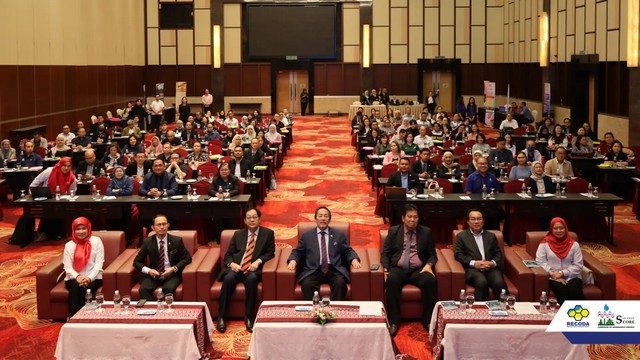
Understanding the Skilled Workforce Issue In Sarawak
The shortage of skilled labour in Sarawak is not a new issue; the Ministry of Education, Innovation and Talent Development Sarawak (MEITD) has been highlighting the need for greater workforce readiness and decrease reliance on foreign talents since the past years.
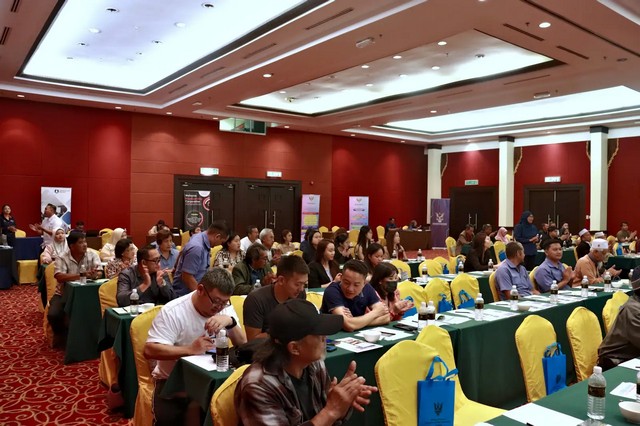
Back in December 2023, the ministry conducted a study with ChemSains Engineering Sdn Bhd, which reveal an increasing need for technical workers, engineers and various specialists in order to achieve Sarawak’s advanced economic agenda like industrial revolution (IR 4.0) and renewable energy.
To ensure the long-term sustainability of the new economic landscape, the government sets an ambitious target of having 500,000 skilled workers by 2030.
However, Sarawak still falls short of achieving this target. According to MEITD deputy permanent secretary Anielia Siam, the skilled workforce in Sarawak only reached past the 200,000 mark as September 2024.
A significant portion of Sarawak’s workforce remains concentrated in low-skilled jobs, with the demand for talent far outstripping supply. Between 2021 and 2022, the number of skilled workers in Sarawak declined from 23% to 21%.
When examining Sarawak’s workforce landscape, academicians like Ts Dr Muhammad Khusairy Bakri and Ahmad Faisal Mahdi identified a combination of root causes.
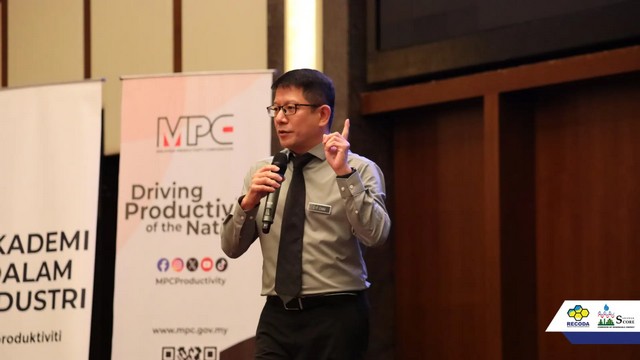
Throughout Sarawak’s rapid industrialisation and technological advancements over the years, cracks in Sarawak’s working landscape that hinder the growth and retention of local talents became more apparent.
For instance, more industry leaders and educators have voiced their concerns over the mismatch between academic programmes and the practical requirements of industries.
Additionally, there is a spike in declining interest in Science, Technology, Engineering, and Mathematics (STEM) fields across Malaysia.
Furthermore, Sarawak has among the highest disparity between earnings and living costs among skilled workers in Malaysia.
Coupled with limited access to advanced research facilities and specialised training opportunities due to limited industry-academia collaboration, local talents are deterred from seeking work opportunities in Sarawak and instead seek greener pastures elsewhere.
As a result, many sectors struggle to find workers with the necessary qualifications, leaving critical positions vacant and stalling growth.
To overcome these challenges, the state has been actively implementing initiatives to upskill its workforce, with the iCPD emerging as one of the cornerstones of these efforts.
The Industry Continuous Professional Development (iCPD) Initiative
The Industry Continuous Professional Development (iCPD) programme is a collaborative effort spearheaded by MEITD alongside the Ministry of International Trade, Industry and Investment Sarawak (MINTRED), the Malaysia Productivity Corporation (MPC), and the Regional Corridor Development Authority (RECODA).
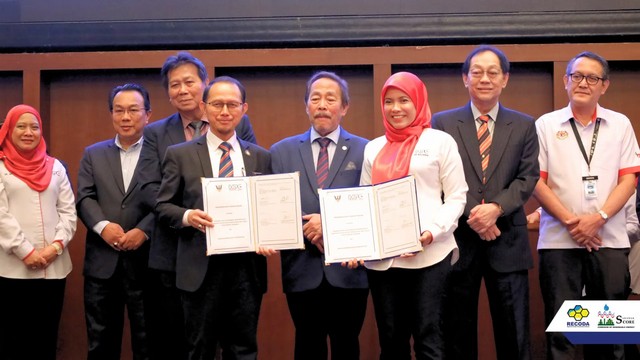
Its primary aim is to bridge the gap between the skills required by employers and the actual capabilities of the workforce, ensuring that Sarawak’s talent pool remains competitive in the evolving job market and in alignment with the Post-Covid Development Strategy (PCDS) 2030, where 30% of the workforce will consist of skilled workers.
2024 marked the inaugural rollout of the iCPD initiative, with five editions held across Sarawak: the first was held in Miri on May 2024, followed by the second edition in Bintulu on June 2024.
Lawas hosted the third edition the following month, with the fourth edition gracing Sibu on August 2024. The fifth edition concluded this year’s iCPD at Kuching this October.
Dato Sri Roland Sagah, Sarawak’s Minister of Education, Innovation and Talent Development, highlighted iCPD’s significance in addressing the skills gap issue between education and industry needs.
“As we embrace a Green Economy and Industrial Revolution 4.0, expectations for learning and development have evolved. In today’s volatile, uncertain, complex, and ambiguous environment, continuous learning is imperative for employees to remain competitive.”
On the iCPD programme, Dato Sri Roland Sagah expressed hope it will serve as a catalyst for stronger collaborations between the government, academia, and industry, paving the way for developing future talent in Sarawak.
With a strategic focus on talent development in technical and vocational skills, the state hopes to post workforce efficiency, and is striving for incremental wage hikes to cater to the evolving demands of the labour market.
“We are also committed to ensuring that the produced workforce remains competitive and resilient as Sarawak advances towards becoming an advanced economy and high-income region by 2030.
To accomplish this, we aim to double the economy from RM136 billion in 2019 to RM282 billion by 2030, with an annual growth rate of 6 to 8% as delineated in the Sarawak Post COVID-19 Development Strategy (PCDS).”
During the event, MEITD also announced their collaboration with the Association of Professional Technicians and Technologists (APTT) and other agencies to meet the goal of 10,000 professionals registered as technologists or technicians under the Malaysian Board of Technologists (MBOT) by 2025.
The event also culminated with a Memorandum of Understanding (MoU) exchanged between MEITD and MPC, laying the groundwork for future collaborations, with MPC deputy director general Dr Mazrina Mohamed Ibramshah echoing the ambition to empower Sarawak’s workforce with up-to-date skills and knowledge.
“The Academy In Industry (ADI) initiative under MPC holds great potential to support key growth sectors such as the digital economy, tourism, and renewable energy, which require technical skills and specialised expertise.
With initiatives like this, we can ensure that Sarawak’s workforce remains equipped with new and relevant skills to meet the demands of evolving industries.”
The iCPD is confirmed to be held again the next year with calls for more involvement from industries and communities.
Sarawak’s Holistic Approach to Workforce Development
Sarawak’s shortage of skilled workers has posed a significant challenge as the region aspires to become a knowledge-driven economy.
According to the latest data from Quarterly Principal Labour Force Statistics by the Department of Statistics Malaysia (DOSM), Sarawak’s labour force participation rate stands at 71.5%, aligning with the national average.
However, sustaining a competitive workforce requires addressing both immediate and long-term challenges, such as upskilling workers, aligning education with industry needs, and attracting talent to emerging sectors.
Dato Sri Roland Sagah underscores the importance of equipping Sarawak’s youth with the necessary skills to thrive in a rapidly changing economic landscape, “A modern workforce is critical for Sarawak’s economic transformation, which is why workforce data analysis has become essential. Information regarding demographics, retirement eligibility, recruitment, and retention is now being captured through the Sarawak Workforce Information System (SWIS).”
To further bolster the talent pipeline, the state has set ambitious targets; increase Technical and Vocational Education and Training (TVET) enrolment by 20%, reduce unemployment by 1.2%, and boost science stream enrolment by 40% by 2025.
The iCPD initiative is just one facet of Sarawak’s comprehensive strategy to overcome the skilled workforce shortage. The state government has implemented several programmes to ensure a steady flow of skilled and competent workers:
Since 2012, the annual SCaT Fair has served as a key platform to promote employability and inspire interest in critical sectors such as Science, Technology, Engineering, and Mathematics (STEM) among younger school students.
The fair provides valuable information on education financing options, career guidance for students and jobseekers, and industry exposure to boost workforce readiness.
- State Talent Policy and Emerging Sector Focus
To retain and attract talent, MEITD proposed a State Talent Policy that aligns with Sarawak’s vision for 2030, with renewable energy, biotechnology, microelectronics, and maritime as the key sectors driving workforce demand.
These industries are positioned to establish Sarawak as a hub for ASEAN’s green economy. Institutions like Sarawak Skills and CENTEXS continue to play a pivotal role in reversing the trend by offering training programmes that enable workers to achieve at least SKM Level 1 and Level 2 certifications.
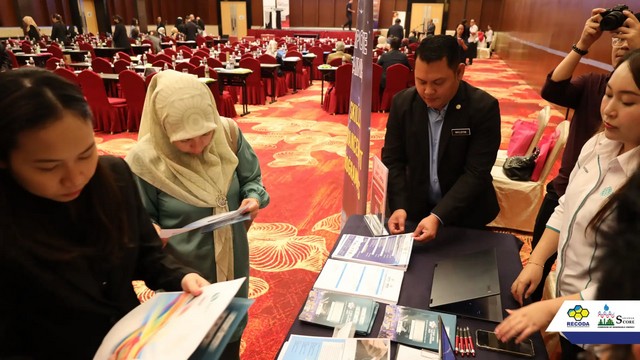
Launched in 2019, the ecosystem fosters innovation and entrepreneurship through grants, mentorship, market access, and workspace facilities.
Multiple Digital Villages and Innovation Hubs have been established across Sarawak to nurture local talent and drive the creation of solutions for state-specific challenges. Supporting frameworks such as the Sarawak Social Enterprise Blueprint and the Digital Village Accelerator further enhance this ecosystem.
- Collaboration with TalentCorp for Industry-Academia Partnerships
In November 2023, Talent Corporation Malaysia Berhad (TalentCorp) partnered with MEITD and the Regional Corridor Development Authority (RECODA) to address local workforce challenges through the Industry-Academia Collaboration (IAC) initiative.
This collaboration aims to facilitate stronger ties between education institutions and industries, promote job-skill alignment based on industry input, and enhance the quality of workforce preparation for Sarawak’s priority sectors.
- Education Incentives and Financial Assistance
In a significant move to ensure equitable access to education, Sarawak’s Premier announced that by 2026, state-owned tertiary institutions will offer free education for students who undertake courses within Sarawak’s high-demand industries.
Additional measures include providing learning aid assistance and subsidies for National Higher Education Fund Corporation (PTPTN) loan repayments.
The Road Ahead: Preparing for Future Opportunities
Despite the challenges, the iCPD programme and complementary initiatives signal a proactive approach to transforming Sarawak’s workforce.
As Dato Sri Roland Sagah noted, “Continuous learning is imperative for employees to remain competitive.” By aligning its talent development strategies with the PCDS 2030 goals, Sarawak is paving the way for a prosperous, self-reliant future, reducing dependence on foreign labour, and driving sustainable economic growth.
The government’s efforts to address the skills gap, if executed effectively, hold the promise of not only meeting the 2030 target but also ensuring Sarawak’s workforce remains resilient and future-ready.
With strategic foresight, accountability, and collaboration between stakeholders, Sarawak would seize a better chance of achieving its vision of becoming a high-income, knowledge-based economy.
References
- Industry Continuous Professional Development — Hotwl Meritz Miri
- Empowering Sarawak’s Workforce: iCPD Enhances Local Skills and Competitiveness
- Lawas Launches Third Series Of Industry Continuous Professional Development Programme
- The Fourth Series of iCPD Launches in Sibu
- iCPD 2024: Empowering Sarawak’s Workforce Through Strategic Partnerships and Industry Expertise
- Sagah: Sarawak addressing skills gap with upskilling, reskilling programmes
- Sarawak’s progress towards 10,000 professionals
- Sarawak needs 30,000 skilled workers annually to meet 2030 target, says ministry
- Sarawak targets 30 pct skilled workforce by 2030 to build knowledge economy
- The urgent need for skilled workers in Sarawak: Solutions and accountability in decision-making
- Sarawak education minister: Study shows increased demand for technical workers in the state
- Unveiling the Dilemma: The Struggle of Sarawakian skilled talent in their homeland
- Free Education In Sarawak: Are We Sacrificing Quality For Quantity?





